 My last blog post on my career conundrum prompted several readers to comment on the post and send me thoughtful emails and DMs about their own experiences. I am glad it resonated so much with everyone. Reading the feedback, and in speaking with others, I noticed a theme: some people are very much in control of their careers and make active choices, while others are letting their careers happen to them. I used to be the latter, sitting in the passenger seat watching the scenery go by, not sure where I was headed. Now I am trying my best to be the former, a driver focused on a career destination of my choice. The reason? Twice, I have been blindsided in my career. I was letting my career control me, instead of the other way around. I do not want that to happen again. I started at a large firm without much of a career plan. Well, my plan was to keep my head down, work all the time, do great work, and be rewarded. Unfortunately, being a lawyer is not the same as being a law student. Working hard does not directly translate into an A+ career. I was not actively in control of my career; I was letting my career unfold around me as I focused only on my files. After working like this for several years, during the seven months that I was away on my second maternity leave, my firm took over another firm, bringing on over a hundred new lawyers, new office space, and lots of new expenses. Shortly following my return, many lawyers were “let go”. I was one of them. While the firm emphasized that the decision had nothing to do with my legal skills and I was a great lawyer (hint: I was a seventh year associate without a book of business and had just taken two maternity leaves in three years), it was still a massive blow to my ego and self-esteem. I quickly realized my loyalty to my firm and hours of hard work were no guarantee that my job would be there forever. CAREER LESSON ONE: Law is a business. Firms are in the business of making money. Economic downturns happen. Pandemics happen. Firms implode. Partnerships crumble. While these events are beyond your control, there are lots of things within your control that you can do to protect yourself. Any time I speak to new lawyers I always remind them that their job is never guaranteed. While I do not want them to be constantly on edge and thinking negative thoughts, they should at least have an outline of a career plan in the back of their minds. This career plan should involve answers to “What if?” scenarios. What I should have been doing since day one as a lawyer was laying the groundwork, making connections, keeping an eye on the legal market and other job opportunities, and building my own personal brand, so I had something to fall back on, or people to reach out to, when my job disappeared. These connections, and a growing network, also help build a book of business, something of value to your firm. This is not an onerous undertaking for new lawyers. It’s as simple as getting to know lawyers outside of your firm and letting them get to know you, volunteering with at least one legal organization, writing an article or two, attending a few networking events, setting up a social media presence, being active on LinkedIn, etc. You don’t have to do all of this, (working around the clock as a new lawyer takes up a lot of time) but pick one or two things to do and dedicate a few minutes each week to your career plan. This way, you won’t be starting from scratch in case one of the “What if?” scenarios happen. This leads to the second career lesson I learned. When I lost my job, I panicked. Instead of taking time to focus and plan and figure out what would be the best job for me and my personality, interests, and skills, I jumped at the first job offer that happened to come my way. Once again, I was not in control of my career. I was letting my career happen to me. I was blindsided when I realized I made the wrong decision. I was not at all a good fit for the new job. Even though I knew early on that I had made a mistake, it took me another 6 months before I had the courage to admit it, take control, and quit. I kept waiting for the job to get better or for me to develop the skills to get used to the new job, or ideally for a new job to just come along and land in my lap with absolutely no effort on my part (ha!). Eventually I quit without another job lined up, but this time I took the lessons I learned and created a career that I love. CAREER LESSON TWO: It sucks to be stuck in a job you hate. No matter how much you hope it will change, it likely won’t. Plan, prepare, and find a new job that you love. While it would be great if the “perfect” job just appeared in our in-box, often we need to work to find it. Passively waiting for your ideal job to come along could result in a lifelong career that was just ‘meh’ and missed opportunities you failed to find. My career moves were thrust upon me in the past. I now make all my decisions with a lot more purpose and drive. I’ve also matured enough to know that money and prestige are wonderful but are not enough to make me happy. I know what makes me happy and each career decision must reflect that. No job is perfect, but it is possible to find one that is a good fit for you. This may take a little help, a legal career coach or consultant, speaking with friends and family, taking the time to get to know your own strengths and weaknesses, but you will get there. No matter what age or stage you are at in your legal career, it is never too late to start being in control. Life’s too short not to be. Photo by Matthew Henry on Unsplash
2 Comments
 I first came to the realization that I might have made a poor career choice during a casual chat with my colleagues at a social event. It was the usual Thursday night litigation drinks held in one of the boardrooms on the 43rd floor at my former firm. I do not recall what we were discussing, but at some point, I said, “I just really hate conflict”. Another associate turned to me with a quizzical look on his face, “You hate conflict? Aren’t you a litigator?” Light-bulb moment. It may sound obvious, but that was really the first time I put two and two together. I was able to recognize the source of the prickly-icky feeling that I had about being a litigator. I hated conflict but I was in a conflict-filled job. The thing was though, for the most part, I enjoyed being a litigator. There were so many aspects that I found exciting and invigorating. I loved trying to find the perfect case to support my client’s position. I loved analyzing the law and crafting a strong argument. I loved starting with a blank screen and finishing with a well-written and persuasive factum. I loved the feeling of making an amazing argument in court. All these things gave me little adrenaline highs (still do). But there were aspects of my job that kept me up at night. Contentious correspondence with opposing counsel caused me so much anxiety. The ‘gamespersonship’, the tactical maneuvering, the surprise strategic motion when I thought we were on track to settle, the “gotcha” new case handed over the morning of the court appearance…all made my heart pound. I could not breathe. Panic would set in. Every time I received a snarky email or even one that was just sternly worded, I would want to vomit. I would cry over opposing counsel being aggressive in settlement negotiations (after I left the room, thankfully) because the conflict it created made me so sad. I just wanted to scream: “Life’s too short! Let’s all get along. Let’s figure this out together. Why must we fight?!” My mentors and other lawyers told me I was “too sensitive”. I have been told this my whole life. I am so sick of hearing those words. My grade school teachers, professors, ex-boyfriends, friends, employers, partners at firms, opposing counsel: “You are too sensitive, Erin. Toughen up, grow a thick skin, and you will be fine”. For too long I was ashamed of my sensitivity and tried my best to hide my emotions. But that is so hard to do when you feel everything. When I walk into a room I just sense what others are feeling and absorb those feelings as my own. When you are in a high-conflict situation those feelings are intense. And I feel every single one of them. I know exactly where my dislike of conflict and my sensitivity comes from. I learned from an early age to walk on eggshells, to not rock the boat, to not cause any conflict that might set someone off. Figuring out a person’s mood, sensing if they were ready to blow, and keeping the peace, were all important if I did not want to get hurt, both physically and emotionally. Between my DNA and my childhood circumstances I am wired the way I am. When I told my mother that I was going to law school, she told me I was “too nice to be a lawyer”. At the time it annoyed me a little, but looking back now I realize she knew the true me. The real Erin was a highly sensitive person who might not fare well in the conflict filled world of litigation. Mothers know best. In my seventh year of practice, when I switched from corporate commercial litigation to estate litigation, things only got worse. I know, I know. Clearly there would be more conflict and emotions in estate litigation, but I am always one who is up for a challenge. I thought I could just put mind over matter and force myself to just “deal with it”. I thought I could beat my sensitivity. I lasted 7 months. The conflict and the anger and the sadness in estate litigation were too much. I absorbed them like a sponge and took those feelings home with me every night. My days were filled with brothers and sisters intensely hating each other; aggressive counsel (some bordering on sharp practice); angry correspondence; clients either crying on the phone to me or swearing at me. I felt like I had this constant orb of anxiety around my body 24/7. On my way to work I would hope to be hit by a car. Not injured badly, just enough that I would have to go to the hospital and not work for a few days. Things were not good. Eventually, I learned I was pregnant, and my obstetrician told me that the stress I was under was affecting my health. It was only then that I gave myself permission to admit defeat. I was never going to “toughen up”. I was never going to build that emotional protective shell around me. I was never going to grow that thick skin. And that was okay. I quit the next day. I have not been a “regular” litigator since. I started my own practice as a freelance lawyer. I support litigators behind the scenes doing all the work that I love to do, drafting pleadings and factums, conducting legal research, writing legal opinions, etc. I never have to deal with opposing counsel. I never have to deal with emotional and distraught clients. It is the perfect practice for me. But some days I feel like a quitter. I see lawyers my age winning prestigious litigation awards and on the cover of newspapers working on headline grabbing cases. I went to law school to take on these cases and to help people. I went to law school to be a real litigator and I am not. Should I have stuck it out? Could I have learned to deal with conflict? I know I was really good at my job. I know I am an excellent litigator. Should I have toughened up and become less sensitive? Is it possible to be a litigator who hates conflict? Is there a secret I never learned? I have no answers. I will just go on with my day being my sensitive self, feeling all the feels, and doing my best behind the scenes to resolve as much conflict in this world that I can. 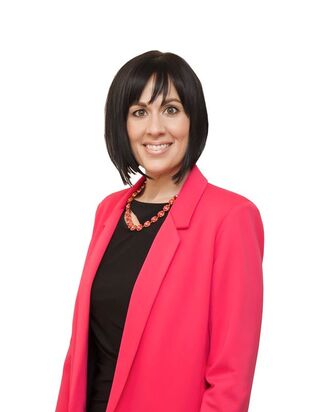 I am pleased to introduce you to our next leading lawyer: Alysia Christiaen. Read on to learn about Alysia's legal career, practice areas, and she has some great advice for working on your business development skills: 1. Tell me a little about your practice or business I am a partner and the Chief Privacy Officer at Lerners LLP, with more than 10 years of experience in advising clients on the issues most critical to them. I practice in the areas of personal injury, privacy and class actions. I have extensive advocacy and appellate experience, including before tribunals, the Superior Court of Justice, and the Divisional Court. I am certified by the International Association of Privacy Professionals as a Certified Information Privacy Professional/Canada. 2. Why did you go to law school? I followed a childhood dream and it fortunately, really worked out for the best! For whatever reason, I fell in love with the show, Matlock, and decided that I wanted to be like Ben Matlock (minus the ukulele – I have no musical talent). 3. How did you get to where you are today? Design? Chance? Both? Grit, determination, confidence, sacrifices and hard work. I am a goal setter; I set one and then I work to achieve it. One of the more difficult things to do is figuring out the next goal now that I’m a partner! I do want to recognize the people I have had in my corner who made it possible for me to get to where I am today. My family and friends provide unwavering support. I have been blessed with amazing mentors – both inside and outside of the practice of law. I do not believe people who say they “made it on their own”. They either have had the most lonely journey, or they have forgotten the help they have received along the way. 4. What is your most significant achievement? What are you proud of? I’m proud of becoming a lawyer. The times we are currently living in are a reminder of the importance of the legal profession. It is our job to ensure that laws are being upheld, freedoms are not being infringed upon, and people’s rights are being protected. On a more personal note, my grandfather was very excited about my becoming a lawyer – it was great to be able to show him my diploma. An equally important achievement was being named a 2019 Lexpert Rising Star. The recognition of my contributions to my firm and to the community, while not necessary, was very rewarding. 5. What are some key challenges, and more importantly, opportunities for women in law? Challenges: Time management – I’ll leave the demands on a woman’s time in the family vs work balance to those who have children. As a woman who has chosen not to have any, it is often assumed that I am easily able to devote extra time to non-billable activities outside of “working” hours (the typical 9-5, which really does not apply to private practice). Learning how to say “no” comes with the challenge of getting over not being seen as a team player. I may not have children to raise in my non-work time, but I do have things to devote my time to that are equally important to me. Opportunities: The ones you make – if there is a project you want to work on, make the right people aware of that. If there is a niche area of law that you want to focus on, communicate that to your practice group leader. Most opportunities are not handed to you, they develop because of the ground work you have laid. You will find that you have more opportunities available if you get over your fear of rejection, and failing. Studies show that men will often apply for jobs or assignments even when they do not have all of the qualifications of an ideal candidate. Women on the other hand, do not. We really need to work on being more confident in our skills and abilities. When we do, more opportunities will present themselves. 6. What advice would you give a woman starting her legal career? If you are headed for private practice, as you progress in your career, your business development skills become just as important as your legal skills. Do not ignore acquiring the skills you need to have a successful independent practice. Take advantage of the business development seminars that are offered, both within and outside of the legal profession. You also need to devote time to creating a business development plan. Building a practice is not something that you can do in your “spare” moments. You should be reviewing and revising your business development plan throughout the year. Evaluate what initiatives are working for you (i.e. gaining referrals) and which are not. Do not waste your resources on initiatives that do not have a return on your time investment. Importantly, be resilient and be patient. You will reach out to people and not get a response – do not take it personally. As anxiety-ridden as it can be, attend networking events and avoid spending all of your time with people you already know. Try to meet one new person – an easily achievable goal. It can be as simple as striking up a conversation with the person in the drink ticket line behind you. Building a law practice is grounded on building relationships; you cannot do that overnight. It involves getting to know a person, and gaining their confidence in you and your ability to effectively represent them, their business or their clients. ---------------------------------------------------- Thank you Alysia for taking the time to participate in this series and for your great advice! I started this blog series because I was tired of hearing about women leaving law and wanted to hear about women leading in law. The "Women Leading in Law" series focuses on good news stories and highlights amazing women succeeding in the legal profession. Each post includes the profiled lawyer's answers to six questions. Prepare to be inspired! ICYMI - previous posts profiled the following amazing lawyers: Patricia Gamliel, Megan Cornell, Yola Ventrescu, Hilary Book, Margaret Waddell, Nandi Deterville, Jennifer Quaid, Maryann Besharat, Cynthia Mason, Roots Gadhia, Evelyn Ackah, Carrisa Tanzola, Sarah Leamon, Robin Parker, Lorin MacDonald, Karen Yamamoto, Victoria Crewe-Nelson, Lynne Vicars, Kemi Oduwole, Anne-Marie McElroy, Jennifer Gold, Jordana Goldlist, Megan Keenberg, Yadesha Satheaswaran, France Mahon, Sarah Molyneaux, Richa Sandill, Vivene Salmon, Kim Whaley, Alisia Grenville, Frances Wood, Maggie Wente, Anita Szigeti, Neha Chugh, Christy Allen & Nancy Houle, Suzie Seo, Kim Gale, Alexi Wood, Melissa McBain, Erin Best, Gillian Hnatiw, Melanie Sharman Rowand, Meg Chinelo Egbunonu, Lisa Jean Helps, Nathalie Godbout Q.C., Laurie Livingstone, Renatta Austin, Janis Criger, May Cheng, Nicole Chrolavicius, Charlene Theodore, Dyanoosh Youssefi, Shannon Salter, Bindu Cudjoe, Elliot Spears, Jessica Prince, Anu K. Sandhu, Claire Hatcher, Esi Codjoe, Kate Dewhirst, Jennifer Taylor, Rebecca Durcan, Atrisha Lewis, Vandana Sood, Kathryn Manning, Kim Hawkins, Kyla Lee, and Eva Chan. 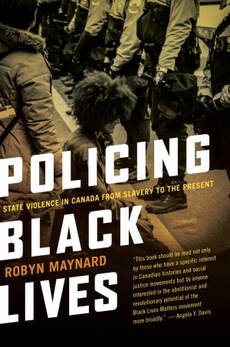 I believe this next book in my educational journey will also be an interesting and informative read for other lawyers. I admit I am late reading this book, which was released in 2017. It should not have taken the death of yet another Black man at the hands of police, and the protests that followed, for me to expand my reading library. Written by Black feminist writer, activist, and educator, Robyn Maynard, “Policing Black Lives: State Violence in Canada from Slavery to the Present” provides a clear and convincing evidence-based explanation of the origins and continuation of anti-Black racism in Canada. Like many Canadians, and as a white woman, it has been easy for me to slip into thinking that our country is “better than” our neighbours to the south. Throughout my childhood my school curriculum taught me to be proud of our “multiculturalism” and Canada’s “accepting” immigration policies. I was told about the enslaved people of the United States and their segregated school system, without mention of Canada’s 200 years of slavery and its segregated schools. “Policing Black Lives” takes this education and flips it on its head, revealing a less rosy truth. Each chapter focuses on a different topic in our country’s history and current systemic anti-Black policies. The topics include the history of slavery and segregation in Canada; racial capitalism and the making of contemporary Black poverty; criminal law and anti-Black racism; law enforcement violence against Black women; ‘misogynoir’ in Canada (punitive state practices and the devaluation of Black women and gender-oppressed people); border regulation; slavery’s afterlife in the child welfare system; anti-Blackness in the school system. The book is thoroughly well-researched and written with an educational and academic tone. This is not a light quick read, and that is okay. It is not meant to be. It is the type of book you will read for a little bit and then put down to digest the information, and sit with the uncomfortableness for a little while, before you move on to the next topic. I appreciated the intersectional approach Ms. Maynard took with this book and while it is focused on anti-Black racism, she also acknowledges Indigenous oppression in Canada. I recommend this book for anyone who wants to learn more about this topic, especially lawyers who work within Canada’s legal system. Readers will leave with a deeper understanding of systemic racism in Canada. 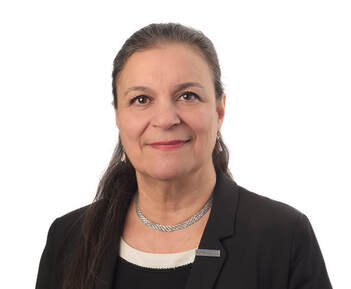 Today we have the pleasure of meeting Patricia Gamliel a lawyer from the Montreal office of Dunton Rainville, Avocats & Notaires. Read on to learn about Patricia's career path and advice for new lawyers: 1. Tell me a little about your practice or business. Administrative law and Access to information law are my passion. Within the administrative law practice, Citizenship and Immigration law is my daily work. While it is an extremely complex practice, it is very much colored by a humanitarian component that keeps one on one’s toes. It also brings litigation and negotiation and requires knowledge and understanding of labour law, commercial law and real estate law. Unlike it, Access to Information law is developing quietly but surely. Our society requires more and more transparency and accountability from government and corporations and more rights toward access to information, especially personal information detained by these bodies are acquired. 2. Why did you go to law school? I always wanted to defend peoples’ rights. As a child, I, sometimes, got into trouble defending another student and it might have had an effect on my choice of a profession. It took time, though, because despite attending law school in France, I travelled and finally decided to set up roots in Canada. Within days, I was offered a teaching job on condition to complete a bachelor in Education at night. Two years later, I had completed said B.Ed., had become, in turns, a union representative, a member of the union executive and a collective agreement negotiator. Following a lock-out and strike, I decided to look again at law schools and one had just opened access to a Bachelor of law degree at night. By then I had two children and was pregnant of the third, still teaching full time but I was very happy! 3. How did you get to where you are today? Design? Chance? Both? Hard work. No, very hard work and constant work to this day. Above all, passion: My passion for Law never lessened. I am always interested in everything that surrounds the application and interpretation of a law. I started off with a small office, a computer, a server and an email address, rushing to pick up the children, cooking and reviewing homework and, then, spending the night working, which included answering emails at midnight sometimes. One must do the best he/she can because this is the obligation of a lawyer. 4. What is your most significant achievement? What are you proud of? I am very proud of the help I have been able to provide to so many people along the way, being clients, colleagues, and others. Referrals mean so much to me but to be invited to weddings and other important events in my clients’ lives always surprises me. As I always say, lawyers work hard, especially women who do not have it, ever, easy, and what keeps many of us going, is, from time to time, to have Justice rendered. That feeling keeps you through the constant stress many lawyers go through. And that, because, often, the rights I acquire for one, extend to others I will never meet but who will enjoy these rights. For example, when I started my career, it was difficult to be a representative in a client’s immigration file. I had the chance to discuss and resolve the issue, first, with the Quebec government in 1996 and, a few years later with Federal government. As a woman, it was particularly important to me to fight for a change of view on women standing in their own culture. Our tribunals acquire expertise on various religions and foreign cultures in immigration but, sometimes, do not see the societal shifts that take place. A typical example is the stance that divorced women from India and its region cannot truly get remarried. While it was true for the longest of time, it is not so anymore and I am happy, some women were able to come to Canada or bring in their husband. With regard to access to information, few people know that, until a few years ago, in the province of Quebec, a narrow interpretation of the applicable law made it quite impossible to access the social services and medical files of an intellectually challenged person. I successfully challenged the interpretation on the basis that our society, now, expect accountability and transparency from the departments involved. Today, the family, the curator and legal caregiver of a challenged person can access these files. As a community person, I continue to make myself available to help non-profit organizations by sitting on their boards of direction. I am, also, very involved with the Canadian Bar Association, the largest association for jurists in Canada which accomplishes, every year, so much for the Rule of Law and extension of rights. 5. What are some key challenges, and more importantly, opportunities for women in law? Women in law face numerous challenges and the first one is to live among what is still a man’s world. We are being told that a growing percentage of women attend law schools but not how many complete their degree or how many and how long does it take them to become partners in private practice unless they develop their own firm. I recognize the challenge is organizational for the ones who decide to take their full place as a woman, a mother and a lawyer in our society but women are resilient in nature. As for opportunities, it requires determination to reach them but also a change of culture. As progressive law firms and corporations realize, more and more, that the angle taken by women in law as well as in business differs, positively, from men’s, not only will women be offered more opportunities but these law firms and corporation will gain so much more in every area of their businesses as proven again an again by statistics. 6. What advice would you give a woman starting her legal career? Join a network, join an association such as the Canadian Bar Association for example, join a group! Jump into the ocean of law and do not ever think that someone better than you should get the position: You are it! ---------------------------------------------------------- I love that last line. How many times have we talked ourselves out of applying or putting our hand up because we think someone else is better or we are not "good enough". Let's stop that thinking! I started this blog series because I was tired of hearing about women leaving law and wanted to hear about women leading in law. The "Women Leading in Law" series focuses on good news stories and highlights amazing women succeeding in the legal profession. Each post includes the profiled lawyer's answers to six questions. Prepare to be inspired! ICYMI - previous posts profiled the following amazing lawyers: Megan Cornell, Yola Ventrescu, Hilary Book, Margaret Waddell, Nandi Deterville, Jennifer Quaid, Maryann Besharat, Cynthia Mason, Roots Gadhia, Evelyn Ackah, Carrisa Tanzola, Sarah Leamon, Robin Parker, Lorin MacDonald, Karen Yamamoto, Victoria Crewe-Nelson, Lynne Vicars, Kemi Oduwole, Anne-Marie McElroy, Jennifer Gold, Jordana Goldlist, Megan Keenberg, Yadesha Satheaswaran, France Mahon, Sarah Molyneaux, Richa Sandill, Vivene Salmon, Kim Whaley, Alisia Grenville, Frances Wood, Maggie Wente, Anita Szigeti, Neha Chugh, Christy Allen & Nancy Houle, Suzie Seo, Kim Gale, Alexi Wood, Melissa McBain, Erin Best, Gillian Hnatiw, Melanie Sharman Rowand, Meg Chinelo Egbunonu, Lisa Jean Helps, Nathalie Godbout Q.C., Laurie Livingstone, Renatta Austin, Janis Criger, May Cheng, Nicole Chrolavicius, Charlene Theodore, Dyanoosh Youssefi, Shannon Salter, Bindu Cudjoe, Elliot Spears, Jessica Prince, Anu K. Sandhu, Claire Hatcher, Esi Codjoe, Kate Dewhirst, Jennifer Taylor, Rebecca Durcan, Atrisha Lewis, Vandana Sood, Kathryn Manning, Kim Hawkins, Kyla Lee, and Eva Chan. 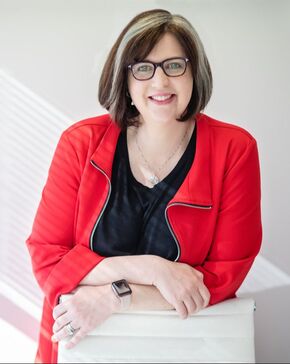 If you are a lawyer with an entrepreneurial spirit and an interest in technology, this next profile is for you. We have the pleasure of learning from lawpreneur and legal innovator Megan Cornell, founder, CEO, and lawyer at Momentum Business Law: 1. Tell me a little about your practice or business. I run Momentum Business Law, an entrepreneur focussed practice headquartered in Ottawa, but serving businesses across Ontario. We are just turning 5 years old this summer and have been focused for all of those 5 years on figuring out how to deliver better legal services to entrepreneurs. We rely heavily on technology to be more efficient for both ourselves and our clients, allowing us to focus a lot on the client relationship. We’re launching an online DIY option for small business this summer called Gain Momentum. 2. Why did you go to law school? I knew since I was 10 and my Grandmother bought me a book called The Scales of Justice that I wanted to be a lawyer. However, most of my life I thought I would go into criminal defence work, particularly working to free the wrongly convicted. Then the summer before law school I worked with a great estates lawyer and realized that even estate law was really interesting to me – so when I finally entered law school I only ever took the one, required, criminal law class. 3. How did you get to where you are today? Design? Chance? Both? Probably like most people, a bit of both! I went out on my own after 10+ years of practice at a mid-sized firm in Ottawa because I knew I wanted to do things “differently”, but I really didn’t know what that meant. I began by working out of my home office and with no clerk, because with no overhead I knew I would be completely flexible. That meant, however, that I had to learn to do absolutely everything for myself – coming from a firm with 60+ lawyers and double that in staff, that was challenging. However, that gave me the foundation to eventually grow the firm and I’ve always expected our team members to know how to do a very wide range of both client work and firm operations. The piece which was more by design was our firm’s focus on using technology and the design thinking employed by technology companies. My partner is in tech and most of our social circle is in tech – this has always help me understand our technology clients well, but it has also directed every thought I’ve had as I’ve designed and built the firm. Principles of lean and agile development, the perspective which product managers bring to customer work, just simply focusing on the firm as a client-centered instead of lawyer-centered organization. This approach has led us to be leaders in both process and technology innovation. I’m so incredibly proud of what our small little firm accomplishes – all because we have embraced a different way of thinking about law and how legal support is delivered to clients. 4. What is your most significant achievement? What are you proud of? I can’t believe that Momentum is 5 years old. There have been some really hard times – mostly when team members left to go on to different opportunities. I wanted to give up so many times. I can say now that it is a horrible idea to start a firm and grow it on your own – I should have had at least one more of “me”, but I’m incredibly proud of how I’ve managed to build a firm which accomplishes what it does. This has absolutely been done with the help of amazing Momentum team members along the way, but I never want to underestimate the burden that comes with the ultimate responsibility for the success of your clients and the livelihood of your team. 5. What are some key challenges, and more importantly, opportunities for women in law? This is such a tough question, because I think that so much of it is the mindset which we bring to our careers. If we accept that we want certain experiences and we commit to making those experiences happen and balancing any competing interests, then all challenges are opportunities. I think that women can get in their own way and overthink things – we have one shot at this so we should seek to enjoy what life presents us with as much as possible. There are SO many routes which our careers can take – they can even take us out of law completely, we just need the courage to find those paths. 6. What advice would you give a woman starting her legal career? Look out for number one (and in case there is any doubt, that’s you!). What I mean by that is, always consider your own best interest as you move through your career. It took me a while to figure this one out: I think that as women we are often oriented towards being people pleasers and trying to support others. Sometimes that is the right thing to do, but not to the detriment of our own careers. Also, you don’t and probably shouldn’t, try to plan out your entire career at the start. Be prepared for change and new opportunities, or for completely changing your mind about what you want to do. Our career is supposed to be challenging and fun (at least some days!), not just something we survive. One of the big secrets about finally finishing school and starting on your career is that it really isn’t as sexy or exciting as you thought it would be. Particularly if you haven’t been in a previous career, it is a bit of a wake up call that the responsibility and day to day routine of a career job can be hard. That doesn’t mean it is time to leave necessarily, but figure out what you do like about your career, and focus on making that the biggest part of what you do – you aren’t doing something wrong if you finally start practice and it isn’t nearly as amazing as you thought it would be! ---------------------------------------------------------------------------- Yes, look out for number one! I like that. Also, I agree, planning out your entire career is futile. Life throws you curve-balls and you might miss opportunities if you are focused on your "plan". Thanks for participating in this series Megan, and congrats on Momentum's 5 Year Anniversary! I started this blog series because I was tired of hearing about women leaving law and wanted to hear about women leading in law. The "Women Leading in Law" series focuses on good news stories and highlights amazing women succeeding in the legal profession. Each post includes the profiled lawyer's answers to six questions. Prepare to be inspired! ICYMI - previous posts profiled the following amazing lawyers: Yola Ventrescu, Hilary Book, Margaret Waddell, Nandi Deterville, Jennifer Quaid, Maryann Besharat, Cynthia Mason, Roots Gadhia, Evelyn Ackah, Carrisa Tanzola, Sarah Leamon, Robin Parker, Lorin MacDonald, Karen Yamamoto, Victoria Crewe-Nelson, Lynne Vicars, Kemi Oduwole, Anne-Marie McElroy, Jennifer Gold, Jordana Goldlist, Megan Keenberg, Yadesha Satheaswaran, France Mahon, Sarah Molyneaux, Richa Sandill, Vivene Salmon, Kim Whaley, Alisia Grenville, Frances Wood, Maggie Wente, Anita Szigeti, Neha Chugh, Christy Allen & Nancy Houle, Suzie Seo, Kim Gale, Alexi Wood, Melissa McBain, Erin Best, Gillian Hnatiw, Melanie Sharman Rowand, Meg Chinelo Egbunonu, Lisa Jean Helps, Nathalie Godbout Q.C., Laurie Livingstone, Renatta Austin, Janis Criger, May Cheng, Nicole Chrolavicius, Charlene Theodore, Dyanoosh Youssefi, Shannon Salter, Bindu Cudjoe, Elliot Spears, Jessica Prince, Anu K. Sandhu, Claire Hatcher, Esi Codjoe, Kate Dewhirst, Jennifer Taylor, Rebecca Durcan, Atrisha Lewis, Vandana Sood, Kathryn Manning, Kim Hawkins, Kyla Lee, and Eva Chan. 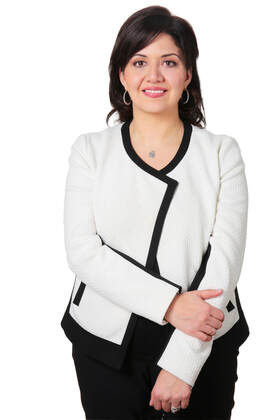 I hope you had a lovely long weekend. Ready for some more great career advice from a leading lawyer? Read on to read about Yola Ventresca's legal journey and some her helpful advice: 1. Tell me a little about your practice or business. I have a diversified, eclectic practice. In general terms, I would define it as a broad based administrative/litigation practice. I have had the good fortune of being able to shape a practice that reflects my passions – something that I value tremendously. My ability to do so was fostered and encouraged by my principals (and mentors): Peter Kryworuk, Shauna Powell and Kevin Ross. I was also lucky to have worked closely with Earl Cherniak in my early years. Earl told me: “do what you love, the files will follow.” That was – and is – invaluable advice that guides me constantly in everything I do. About half of my practice is devoted to health law. It was health law that brought me to Lerners in the first place. This includes primarily the representation of regulated health professionals confronting various issues including litigation, proceedings before their respective regulators (i.e. College of Physicians and Surgeons of Ontario, Royal College of Dental Surgeons of Ontario), privacy concerns, human rights proceedings and issues arising from hospital practice. I am part of a specialized team at Lerners that deals with issues related to medical assistance in dying, and, more recently, issues flowing from the COVID-19 pandemic. The balance of my practice involves various types of administrative and tribunal work. I have a robust practice focussed on post-secondary institutions. To this end, I provide advice to universities on a myriad of issues ranging from sexual violence to research ethics. I also have a significant labour practice focussed on post-secondary institutions. In addition, I am a certified workplace investigator, and, in this role, offer independent fact-finding services for various sectors. The rest of my practice consists of employment law, human rights law and appellate work. 2. Why did you go to law school? I should start by saying that it was not entirely a given that I would go to law school. After graduating from Huron University College at Western with an Honours BA, I was accepted into a graduate program in History and was seriously contemplating that route. However, the precarious nature of academic work ultimately led me to decide to go to law school (the dream of my five year old self, even though I had no lawyers in the family). So, I accepted an offer from the Faculty of Law at Western University. There, I had the incredible fortune of being mentored by some outstanding professors. The three that come to mind most vividly are Dr. Melanie Randall, Dr. Rande Kostal and Professor Robert Solomon. Professor Solomon’s course in Health Law was life-changing. I didn’t know what health law was before I started law school. Professor Solomon’s enthusiasm for the subject and his ability to push his students to reach beyond their grasp really inspired me. After finishing first in his health law class he suggested to me that I try to secure an articling position at Lerners. I remember vividly a conversation in his office on a Sunday afternoon in 2004 when he told me that in terms of health law, Lerners would always provide me with an intellectually challenging flow of health law files – and he was right. With letters of support from my mentors, I landed one of three available articling positions at Lerners that year. While one might think the rest was history, my love for academic work quietly followed me through my articling year at Lerners. So much so that at the end of the year, after much soul searching, I decided to apply for the full time LL.M. program at the University of Toronto. My husband was to be on sabbatical that year, and I could not pass up the opportunity to be a full-time student one last time. With funding offers from the Social Sciences and Humanities Research Council of Canada and the Canadian Institutes of Health Research, I advised Lerners I was withdrawing my name from consideration for hire back. We sold our home and packed our bags for Toronto. My year at the University of Toronto was intellectually stimulating and exciting. I entered the specialized Health Law and Policy LL.M. program. There, I again encountered inspiring mentors and health law “giants” including Dr. Rebecca Cook, Dr. Colleen Flood and Professor Joanna Erdman. I pinched myself almost everyday at my good fortune to be at the epi-centre of health law research. I was honoured to have my thesis supervised by Dr. Bernard Dickens, arguably Canada’s leading expert on medical law. As I neared the completion of my LL.M., I was encouraged by several of my mentors to pursue doctoral studies. After considerable soul searching and many long conversations, I decided that I wanted to practice law, and health law in particular. I was offered a job at Lerners in London after I completed my LL.M. It’s been my home for the past thirteen years. I will say that I have never lost my interest in, and commitment to, scholarly research and teaching. I’ve been lucky to be a part of a firm that supports my passion. I’ve published many articles in peer-reviewed journals and have taught at Western’s Faculty of Law. I feel that my scholarly work informs, sustains, and enriches my practice. 3. How did you get to where you are today? Design? Chance? Both? The short answer is that I worked hard. Really hard. And, as the old adage goes, luck is what happens when hard work meets opportunity. And that’s precisely what happened to me, with the assistance of some tremendous mentors and sponsors. I was raised with a very strong work ethic. I come from a big, Lebanese family. My father left Lebanon in the 1970s with eighty dollars in his pocket. My mother, who left Lebanon when she was six, was raised by her mother in precarious socio-economic conditions. My parents eventually became teachers (my mother would later become a school principal). I think understanding (and seeing) the tremendous sacrifices they made for their children propelled me forward. Getting an education, gaining a profession – these were a given growing up. I worked as a waitress and bartender during my undergraduate and law school studies, sometimes working up to thirty hours a week. This forced me to be organized and disciplined with my time. Working in the service industry imparted in me all kinds of skills which, at the time, I had no idea would assist in a legal career. Things like really listening to someone, picking up on non-verbal cues, diffusing tense situations, working late nights. I carried those lessons, and the lessons of my childhood, into the practice of law. 4. What is your most significant achievement? What are you proud of? While I have been honoured to receive a number of external distinctions (Lexpert Rising Star, rankings in Best Lawyers in Canada and the Lexpert Legal Directory), my most significant professional achievement was being a named an equity partner in December 2015; eleven months after I returned from parental leave following the birth of my daughter in August 2014. The journey to parenthood was a difficult one for me. My daughter arrived in my sixth full year of practice. By that time, I was a non-equity partner. Having been focussed on myself and my career for so long, I was petrified that I would find my parental leave difficult, that I would miss my files and my work. But I didn’t. In fact, I loved my leave (I say this knowing it is not so for many women and many, many, struggle tremendously). I loved it so much that when my six month leave was almost up, I started to have doubts about going back (or going back so soon). I remember taking my daughter to a lunch at the mall with our former managing partner and one of the great mentors of my life and career, Janet Stewart, Q.C. Eating my salad while rocking my almost six-month old daughter in her stroller, I told Janet that I didn’t know that I was ready; that I was losing sleep about going back to work so soon and that I would really like to just stay in my stretchy clothes for another six months. Looking me straight in the eye Janet said: “Yola, just give it a try; come back. If you come back and you need more time, we’ll give it to you, no questions asked.” If all of this had been playing out on film, a lighting bolt would have hit the protagonist at this point (me). With those few words of reassurance, and the knowledge that I could change my mind, I went back to work in February of 2015. Much to my surprise, having a child transformed the way I practiced. I worked smarter, more efficiently, learned to prioritize my time and got good at saying no. As each day passed, I felt more comfortable; I knew that I could be a good parent and a good lawyer. And that gave me confidence. Confidence for what my husband would jokingly refer to as the last 100 metre sprint to the finish line. I realized that equity partnership would do so much, not only for me, but for my family. So, I pushed through that last and hardest sprint. Being voted into the partnership the same year I returned to practice is something that will always bring me pride. I am most proud of myself for having found that extra gear; for just putting one foot in front of the other to achieve a long-cherished professional and personal goal. For not stopping. 5. What are some key challenges, and more importantly, opportunities for women in law? There is no doubt in my mind that private practice, to a significant extent, remains based on anachronistic views of family life from fifty or more years ago. It is premised on there being two partners in the home – one bound and one “un-bound”. In this paradigm, the “un-bound” partner, almost always the man (in heterosexual relationships), has limitless flexibility. He is able to take a 7am breakfast meeting because someone else is getting the kids ready for school; he does not hesitate to stay late at the office because someone else is tasked with the responsibility of school pick-up and homework oversight. He’s able to leave town on the drop of a dime, because the “domestic arena” is covered. Frankly, in my own life, I have the great benefit of having a partner who supports me (and has always supported me) in real and tangible ways. How? By taking on the lion’s share of the day-to-day work required to raise our daughter (while at the same time being an accomplished scholar, author, and educator). This was game changing for me. The empirical evidence regarding the attrition of women from private practice all points to one fact. It is not the having of children or the taking of parental leaves that makes many women feel that private practice and motherhood are not compatible. It is the early years of child-rearing and private practice that makes many (who want to stay in private practice) feel they have no choice but to leave. Now that I am in a position to assist others, most meaningfully as a mentor to junior lawyers, I am mindful of these hidden barriers in the domestic sphere. I offer as much flexibility as possible in terms of meeting times and calls. I try to mirror positive self-care behaviour, such as taking time for myself, putting boundaries around my personal engagements and saying no to office housework. I spend lots of time talking to my mentees about “making it all work” and that how “making it all work” sometimes means just getting through. I talk about when I’ve failed as much as I talk about when I’ve succeeded. I encourage them to think about the long game; the way that things change as one moves through the ranks of a law firm. I recognize that there are a myriad of other issues women face in law: pay inequity, sexual harassment and unrecognized/unpaid work. I had the opportunity to write a recurring column this past year for Advocacy Matters that addressed many of these issues. Part of my process was eliciting input for the various columns from female lawyers. My DMs were consistently flooded with stories from women talking about their experiences with sexual harassment, inappropriate prying into their personal lives, and being passed over for important files. We may like to think that the profession has dealt with these issues. We have not. Yes, there has been progress, but there remains a tremendous amount of work to do to address the systemic barriers that contribute to the under representation of women in the ranks of equity partnership and firm management. All that said, there is still so much good that should inspire us all. At Lerners in London, I would need well more than two hands to count the number of women at the equity partner rank who have families and thriving legal practices. There is a real culture of reaching behind you to pull up the next woman in line. Having been the beneficiary of this culture, I am doing my part now to reach out my hand. This means providing meaningful sponsorship, introduction to clients, work on high quality files, and pragmatic advice. 6. What advice would you give a woman starting her legal career? First and foremost, be honest with yourself. Do you enjoy the type of law you are practicing? If not, make the switch early. Find a firm with a culture of not only mentorship, but sponsorship. Try things before you think you are ready. Put your hand up for opportunities. Ask for opportunities. Be a trusted colleague. Always be professional with opposing counsel. Protect your reputation. Find a friend at work. Not just a colleague, a true friend. Someone who will support you, let you vent and have your back. And be that person for someone else. Take pride in your work. Think of yourself as an apprentice and soak up as much as you can. The early years go by in a blink. And, finally, but most importantly, remember that ours is a profession imbued with privilege and power. Stand up for people who are marginalized. Try your best to listen and understand. Lend your voice to the cause of equity and speak up when you see an injustice. Try to do your small part to move the profession toward a model where all feel included and respected. --------------------------------------------------------------------------- Wow! So much awesome advice in this one post. Thank you Yola for taking the time to provide such thoughtful, personal and valuable answers to these questions. I started this blog series because I was tired of hearing about women leaving law and wanted to hear about women leading in law. The "Women Leading in Law" series focuses on good news stories and highlights amazing women succeeding in the legal profession. Each post includes the profiled lawyer's answers to six questions. Prepare to be inspired! ICYMI - previous posts profiled the following amazing lawyers: Hilary Book, Margaret Waddell, Nandi Deterville, Jennifer Quaid, Maryann Besharat, Cynthia Mason, Roots Gadhia, Evelyn Ackah, Carrisa Tanzola, Sarah Leamon, Robin Parker, Lorin MacDonald, Karen Yamamoto, Victoria Crewe-Nelson, Lynne Vicars, Kemi Oduwole, Anne-Marie McElroy, Jennifer Gold, Jordana Goldlist, Megan Keenberg, Yadesha Satheaswaran, France Mahon, Sarah Molyneaux, Richa Sandill, Vivene Salmon, Kim Whaley, Alisia Grenville, Frances Wood, Maggie Wente, Anita Szigeti, Neha Chugh, Christy Allen & Nancy Houle, Suzie Seo, Kim Gale, Alexi Wood, Melissa McBain, Erin Best, Gillian Hnatiw, Melanie Sharman Rowand, Meg Chinelo Egbunonu, Lisa Jean Helps, Nathalie Godbout Q.C., Laurie Livingstone, Renatta Austin, Janis Criger, May Cheng, Nicole Chrolavicius, Charlene Theodore, Dyanoosh Youssefi, Shannon Salter, Bindu Cudjoe, Elliot Spears, Jessica Prince, Anu K. Sandhu, Claire Hatcher, Esi Codjoe, Kate Dewhirst, Jennifer Taylor, Rebecca Durcan, Atrisha Lewis, Vandana Sood, Kathryn Manning, Kim Hawkins, Kyla Lee, and Eva Chan.  This week in the Women Leading in Law blog series, we learn about the career and law practice of Hilary Book. Read on for some great tips for lawyers: 1. Tell me a little about your practice or business. I founded my own commercial litigation firm, Book Law, about 1.5 years ago after a dozen years practicing at other firms on Bay Street. We do everything from breach of contract cases to professional negligence to real estate disputes, with a lot of experience in oppression and fraud cases. Our focus is on providing smart, practical advice and representation. This means helping clients make decisions that are in their best long-term strategic interests, and finding creative solutions rather than just marching rigidly through each step of the litigation process. One of the things I love most about my practice is its diversity, both in terms of the cases we handle and the people we represent. We act for a wide range of clients, from publicly traded companies to family-owned businesses to individual entrepreneurs, in all sorts of different industries. We also act for clients from many different cultural communities, with many different life stories. The diversity of my practice requires constant learning on my part, which is a joy. 2. Why did you go to law school? In some ways, it was a default. I always loved going to school, but I didn’t want to go into grad school or academia – I do much better with structure and frequent deadlines! I enjoyed some of the work I’d done in undergrad in legal philosophy and restorative justice, and thought law school would be a good way to continue to explore Big Questions. I went to law school planning on becoming a “constitutional lawyer”, without any real idea of what that meant. Then I got to law school and found that constitutional law was my least favourite course, and that I really enjoyed my private law courses. 3. How did you get to where you are today? Design? Chance? Both? A bit of both. I knew I wanted to be a courtroom litigator, and I actively sought out the experiences and work that I thought would get me there. At the same time, no one succeeds without a little of bit of luck to be in the right time at the right place. As for opening my own firm, that’s not something I ever planned to do or thought I could do, but as it turns out, I was wrong. It just goes to show that, even if you do have detailed career plans, you need to stay open to new ideas and adapt accordingly. 4. What is your most significant achievement? What are you proud of? Book Law. I started the firm with a lot of confidence in my legal abilities, but I was a bit more concerned about my ability to generate work. I’m really proud that I’ve created a financially successful firm while doing the work I like doing, and practicing in a way that accords with my values. 5. What are some key challenges, and more importantly, opportunities for women in law? In commercial litigation, it can still be really challenging for women to be taken seriously as advocates and, especially, as lead counsel. This is very problematic when it comes to landing new work. From time to time I’m told outright that a client doesn’t want to retain me because I’m a woman (which at least has the virtue of confirming that it isn’t all in my head), but more often I hear variations on “you seem really nice, but are you tough enough to handle my case?” (They always come around once they see me in court, but if I don’t get hired in the first place, they don’t get the chance.) I believe that women have the opportunity to be leaders for change in law. The challenges that many of us still face give us perspective on the systems, attitudes and practices that serve to exclude so many. While we still have a long way to go, there is a lot of openness now to hearing our perspectives and voices. 6. What advice would you give a woman starting her legal career? Don’t be afraid to be ambitious. Don’t be afraid to ask for what you want. Be a smart and strategic advocate for yourself, just as you are for your clients. Be true to yourself – your values, your interests, your goals. Take care of yourself, physically and mentally – it is not in the best interests of you, your clients or your firm for you to burn out. We all need support, so nurture your network. Stay in touch with classmates, join professional organizations and be an active volunteer. Seek out mentors and sponsors, and be a generous mentor yourself. These relationships are critical to sustaining you through a long and happy career that will inevitably have ups and downs. --------------------------------------------------------------------------------------------------------- Thanks Hilary for taking the time to participate in this series. I started this blog series because I was tired of hearing about women leaving law and wanted to hear about women leading in law. The "Women Leading in Law" series focuses on good news stories and highlights amazing women succeeding in the legal profession. Each post includes the profiled lawyer's answers to six questions. Prepare to be inspired! ICYMI - previous posts profiled the following amazing lawyers: Margaret Waddell, Nandi Deterville, Jennifer Quaid, Maryann Besharat, Cynthia Mason, Roots Gadhia, Evelyn Ackah, Carrisa Tanzola, Sarah Leamon, Robin Parker, Lorin MacDonald, Karen Yamamoto, Victoria Crewe-Nelson, Lynne Vicars, Kemi Oduwole, Anne-Marie McElroy, Jennifer Gold, Jordana Goldlist, Megan Keenberg, Yadesha Satheaswaran, France Mahon, Sarah Molyneaux, Richa Sandill, Vivene Salmon, Kim Whaley, Alisia Grenville, Frances Wood, Maggie Wente, Anita Szigeti, Neha Chugh, Christy Allen & Nancy Houle, Suzie Seo, Kim Gale, Alexi Wood, Melissa McBain, Erin Best, Gillian Hnatiw, Melanie Sharman Rowand, Meg Chinelo Egbunonu, Lisa Jean Helps, Nathalie Godbout Q.C., Laurie Livingstone, Renatta Austin, Janis Criger, May Cheng, Nicole Chrolavicius, Charlene Theodore, Dyanoosh Youssefi, Shannon Salter, Bindu Cudjoe, Elliot Spears, Jessica Prince, Anu K. Sandhu, Claire Hatcher, Esi Codjoe, Kate Dewhirst, Jennifer Taylor, Rebecca Durcan, Atrisha Lewis, Vandana Sood, Kathryn Manning, Kim Hawkins, Kyla Lee, and Eva Chan. 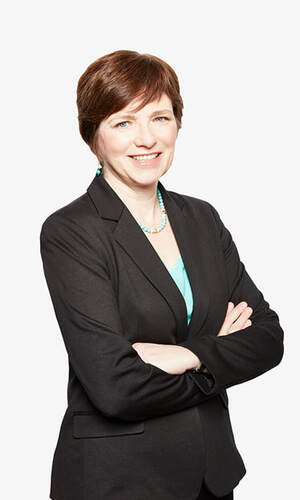 I first met the next leading lawyer in this series, Margaret Waddell, at an Advocates' Society Women in Litigation conference. She was the mentor assigned to my table of women litigators. Marg had a lot of valuable and no-nonsense advice to give. It was much appreciated by everyone at the table. Read on to learn Marg's story and some of that advice: 1. Tell me a little about your practice or business. In June 2017, I opened Waddell Phillips PC with my two partners, John K. Phillips and Julia Tremain. WP is a litigation boutique, which has now grown to a total of 8 lawyers, two contract lawyers, an articling student, Lakehead placement students, summer student and 8 support staff. My practice focusses on plaintiff side class actions, but I still also act on commercial litigation and executive employment matters, and some defence work on class actions. The class actions that we have underway or under investigation cover a broad gamut, including institutional abuse, consumer protection, product liability, medical devices, privacy breaches, and securities misrepresentations. We are always keeping our eye open for the next case that captures our interest, and that meets our firm objective of providing access to justice for victims of injustice or corporate malfeasance. 2. Why did you go to law school? I knew that I wanted to be a lawyer from a very young age. I was inspired by the character of Beth Davenport on the TV show Rockford files. Beth was a strong, independent woman, who spent a lot of time getting her client out of trouble with the law. However, criminal law was never of interest to me. My desire to become a lawyer was more based upon the fact that it would lead to a career that would allow me to be self-determinative, while at the same time I could provide advice and guidance to others who had brushed up against the legal system and needed help. Helping those in need has always been a strong motivating factor for me. 3. How did you get to where you are today? Design? Chance? Both? If you had asked me 30+ years ago what I would be doing now, I’m pretty sure that running my own eponymous firm would not have been anywhere near the top of the list. When I left law school, I certainly knew that I wanted to be a litigator, but more than that, I had no idea. I was pretty naïve – a small town girl with no lawyers in the family or our circle of friends, and no concept of how a business actually runs. I was also very young (I started law school after only 2 years of undergrad). However, along the way I had the great fortune to have some amazing mentors, who taught me the ropes; but also gave me a lot of leeway to learn through my own successes and failures while running files on my own, with only a light touch of supervision. I feel very fortunate to have matured as a lawyer when this was the norm, knowing that it has become increasingly rare for junior lawyers to be entrusted with clients’ cases from the beginning to the end. I also had an abundance of role models – who represented both what I would like to become and what I would never want to be. I believe that you need exposure to the good, the bad and the ugly in order to really come to terms with who you are in this profession, and what you can aspire to achieve. I learned from all these people, and eventually figured out what I really wanted to do, and that meant being my own boss, rather than trying to conform to someone else’s ideal of what the practice of law should look like. As for the practice area, that was entirely by chance. When I was called to the bar in 1989, the Class Proceedings Act had not yet been enacted. That came three years later. Contingency fees had been forbidden in Ontario up until that time, and when the CPA came into force, the thought of taking on such massive cases, and carrying the extraordinary risk that is associated with them seemed potentially foolhardy and definitely a gamble. That was not me. In the early years of practice I was no risk-taker. However, over time, I cautiously waded into the class action world, and the more exposure I had, the more I embraced it. The CPA is such an influential tool for enforcing the rights of the disenfranchised – it gives power to the powerless. It is a serious behaviour modification tool, and ensures that institutional and corporate actors can be held accountable for their misconduct. I like that, and it gives me a sense of purpose to know that I am helping people who might otherwise go without a remedy when they have been harmed. 4. What is your most significant achievement? What are you proud of? I don’t think that I have a single most significant achievement. Sure, there have been some great wins along the way, and also some spectacular losses. That comes with more than 30 years in the trenches. But the thing that I am most proud of is to be the only female head of a class action firm in Canada, to my knowledge. I am enormously proud of my firm and the wonderful group of professionals that have joined with me to make it a success. In three years, WP has grown to triple its original size. We have a wide range of class actions underway, and more in the investigation stage. In fact, I have achieved exactly what my original business plan had envisioned, all seemingly without any extraordinary effort on my part to make it happen. I am also immensely grateful to all the lawyers who had the faith in me to refer clients, or who sought me out to co-counsel on actions, and even more so to those that have taken the chance to work with me, when there are obviously safer and potentially more lucrative alternatives available to them. 5. What are some key challenges, and more importantly, opportunities for women in law? The opportunities for women in law are vastly expanded from 3 decades ago. Women entering law are no longer the exception, or seen as a “woman in a man’s world”. I don’t believe that newer calls need to go to the same lengths that those that preceded them had to go to achieve equality. The world is starting to acknowledge that the diversity of views and life experiences that women bring to the profession, although different from their male peers, are equally valid and important. There are more women in leadership roles, and the networks of mentors and sponsors are ubiquitous. These were non-existent when I started in the practice. I think that as the barriers are broken down, and new attitudes take over the profession, particularly about the ways that we practice law, the opportunities are endless. Innovation and technology have made a huge difference and will continue to do so. Women are equally placed to ride that wave, and to design their own futures in a way that suits their circumstances, skills and aspirations. Sure, the big firms will endure, and for many that is the grail that they seek. It will be there for them; but the opportunities for women now are really only circumscribed by their own imagination and desire. 6. What advice would you give a woman starting her legal career? I don’t have a pat answer to this question. It really depends on the woman, and what she wants to get out of her legal career. The obvious advice is to always be prepared – know your stuff – because to succeed in this profession, as in any other, you have to work hard and be prepared for the unexpected. But that’s a trite response. There are a lot of very hard working, highly capable women with successful careers, and they are not happy. I think that unhappiness comes from compromising your own values and desires. So, I would say, don’t do that. Don’t settle in a job that is sucking away your joy just for the security of a pay cheque. Take risks. And be true to your inner self. If you do the things that make you happy and give you fulfilment, you will be a success. --------------------------------------------------------------------------------------------------------- Thanks for these wise words, Marg, and thank you for participating in this series. I started this blog series because I was tired of hearing about women leaving law and wanted to hear about women leading in law. The "Women Leading in Law" series focuses on good news stories and highlights amazing women succeeding in the legal profession. Each post includes the profiled lawyer's answers to six questions. Prepare to be inspired! ICYMI - previous posts profiled the following amazing lawyers: Nandi Deterville, Jennifer Quaid, Maryann Besharat, Cynthia Mason, Roots Gadhia, Evelyn Ackah, Carrisa Tanzola, Sarah Leamon, Robin Parker, Lorin MacDonald, Karen Yamamoto, Victoria Crewe-Nelson, Lynne Vicars, Kemi Oduwole, Anne-Marie McElroy, Jennifer Gold, Jordana Goldlist, Megan Keenberg, Yadesha Satheaswaran, France Mahon, Sarah Molyneaux, Richa Sandill, Vivene Salmon, Kim Whaley, Alisia Grenville, Frances Wood, Maggie Wente, Anita Szigeti, Neha Chugh, Christy Allen & Nancy Houle, Suzie Seo, Kim Gale, Alexi Wood, Melissa McBain, Erin Best, Gillian Hnatiw, Melanie Sharman Rowand, Meg Chinelo Egbunonu, Lisa Jean Helps, Nathalie Godbout Q.C., Laurie Livingstone, Renatta Austin, Janis Criger, May Cheng, Nicole Chrolavicius, Charlene Theodore, Dyanoosh Youssefi, Shannon Salter, Bindu Cudjoe, Elliot Spears, Jessica Prince, Anu K. Sandhu, Claire Hatcher, Esi Codjoe, Kate Dewhirst, Jennifer Taylor, Rebecca Durcan, Atrisha Lewis, Vandana Sood, Kathryn Manning, Kim Hawkins, Kyla Lee, and Eva Chan. 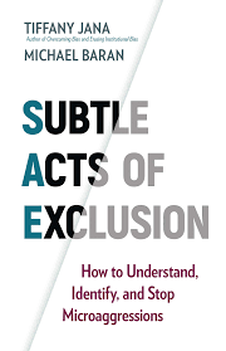 While I normally only review “law” related books for my blog, I believe this book will be beneficial to all lawyers and leadership teams at law firms. Like many of you, I have been reflecting over the past month or so on what I can do to address racism, and in particular anti-Black racism in our country and our profession. I am committed to anti-racism, but know I am not doing enough. Right now, my activism is donation based and I am listening and learning, and I am trying to amplify BIPOC (Black, Indigenous, People of Colour) voices. I have also committed to the Anti-Racist Small Business Pledge compiled for and presented during a town hall on listening, learning and committing to building an equitable, anti-racist organization that I attended in June, organized by Ericka Hines, Rachel Rodgers, and Susan Hyatt. Part of my listening and learning is reading more books on anti-racism and by more diverse authors. The first book I finished was “Subtle Acts of Exclusion: How to Understand, Identify and Stop Microaggressions” by Dr. Tiffany Jana and Dr. Michael Baran. I chose this book because while overt-racism may be easy to spot, we must also not forget about the subtle everyday actions that exclude BIPOC in the legal profession. This book focuses on what are commonly known as “microaggressions”, a term that originated in the early 1970s with the work of Harvard psychiatrist Chester M. Pierce. Microaggressions have been defined as indirect or subtle discrimination against members of a marginalized group. The authors describe these as subtle ways that verbal and non-verbal acts serve to exclude people. They want to reframe the term “microaggressions” to “subtle acts of exclusion” or "SAE" as there are drawbacks to the term “microaggression”. There is a lack of clarity about what a microaggression is and the term is communicating implicitly that it is not really a big deal (just “micro”). Also, the term itself provokes defensiveness (“Can I talk about your microaggression?” “I was not being aggressive!”). The authors prefer the term SAE as these acts are subtle and they serve to exclude people. An example, when someone asks a racialized person “So, like what are you?” or “Where are you really from?” On the surface it might seem like the person is just being curious, however implicitly under the surface they are communicating “You are not normal” or “You are a curiosity”. The book provides several examples of the harm that SAE cause to individuals in general, but especially in the workplace. As they note: “Work should not be a place where we are subtly injured on a regular basis until we have retreated into little cocoons of isolation and misery.” It is important that SAE are addressed at work and, I say, especially at law firms. As the authors observe: "Whether in the form of exaggerated stereotypes, backhanded compliments, unfounded assumptions, or objectification, SAE are insidious and damaging to our coworkers and colleagues." What stood out for me was the stark truth that everyone commits SAE against others. Even the authors, experts on equity, diversity and inclusion, shared SAE they initiated. Thinking back, I cringe at some SAE I have said or done. The authors repeatedly underscore the point that SAE are never about intent. Many of us are well-intentioned in our comments or actions, but that is not the point. While I might have thought I was saying one thing, in reality, I was implicitly communicating something quite different. And that is not okay. The book sets out a framework for identifying what SAE are implicitly communicating: You are invisible. You are inadequate. You are not an individual. You don’t belong. You are not normal. You are a curiosity. You are a threat. The authors provide a step by step guide and recommended practices when SAE happen from the perspective of everyone involved, including the person who is being excluded by the SAE (the subject), the person who says or does the SAE (the initiator) and anyone who overhears or witnesses the SAE (the observer). The observer role is significant as the observer can take this opportunity to become an ally. The book also gives advice on how to have a bigger conversation about SAE at work. SAE need to be addressed in the culture of the workplace or law firm. The goal being that there is an environment in which all people involved in an SAE know how to respond in a productive way. The authors point out that: “Organizationally, the culture can normalize the act of intervening by helping people recalibrate their expectations that SAE are a common part of human behaviour.” It is not about punishing people who slip up, it’s about “making room to name the problem and intervene in the moment to prevent further harm”. Some suggested language is provided by the authors to use when an SAE occurs. Some of the examples sound a little contrived to me, but they do provide some guidance and some language to start with that you can make your own. The book is extremely non-judgemental and comes from a place of wanting to help and make change rather than calling out bad behaviour or bad people. (The authors prefer “calling people in” to a conversation.) It is an easy and accessible read and I recommend it to anyone who wants to learn more about this subject. I recommend using this book to guide a conversation with the members of your firm, including all lawyers and staff. There are several helpful nuggets of wisdom and advice in this book. Many lawyers are subtly excluded in law firms all the time. How can we stop that? Start with reading this book and committing to change. Next Up on my Reading List: Policing Black Lives: State Violence in Canada from Slavery to Present by Robyn Maynard. |
Erin C. Cowling is a former freelance lawyer, entrepreneur, business and career consultant, speaker, writer and CEO and Founder of Flex Legal Network Inc., a network of freelance lawyers.
Categories
All
Archives
April 2022
|
|
(C) 2014-2024 Cowling Legal. All rights reserved.
|
Please note I do not represent legal clients of my own and I am no longer taking on freelance lawyer projects for other lawyers at this time.
Information on this website does not constitute legal advice and is for informational purposes only. Accessing or using this website does not create a solicitor-client relationship. See website Terms of Use/Privacy Policy. info@cowlinglegal.com
3080 Yonge Street, Suite 6060 Toronto,ON M4N 3N1 (appointment only) |
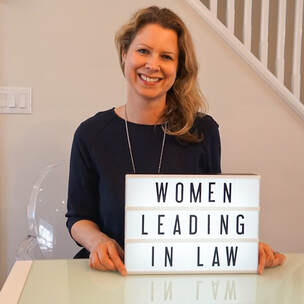
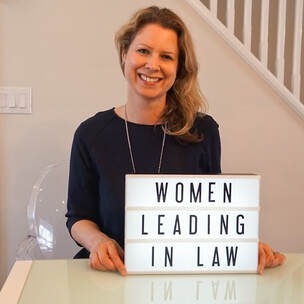
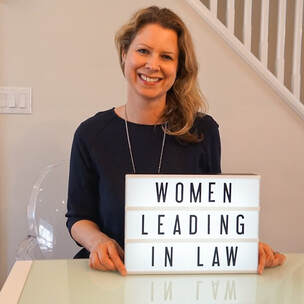
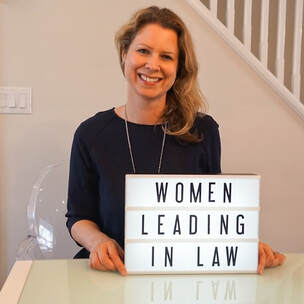
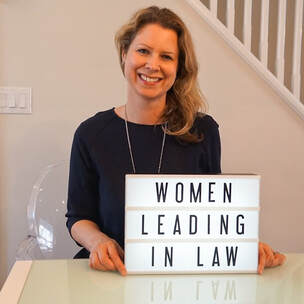
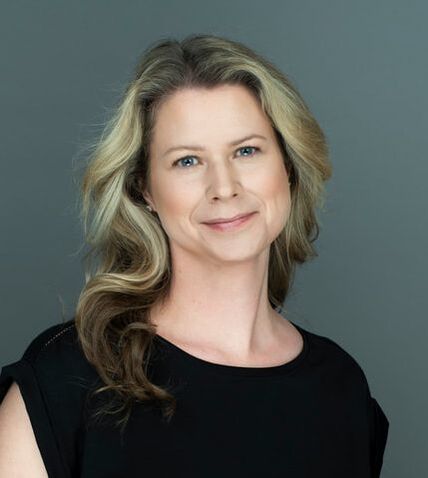





 RSS Feed
RSS Feed
